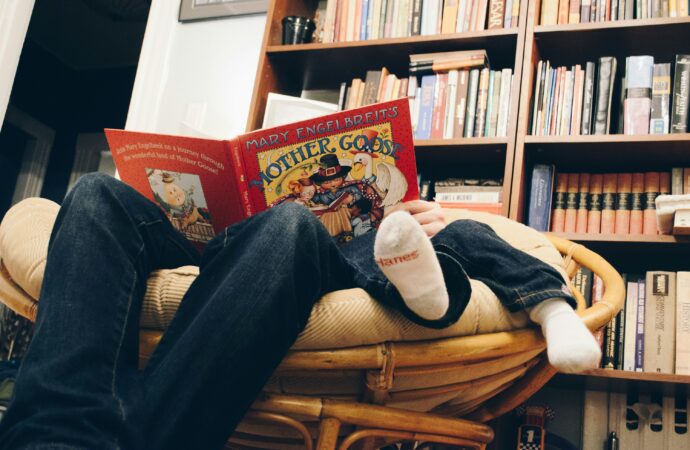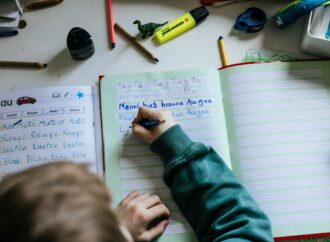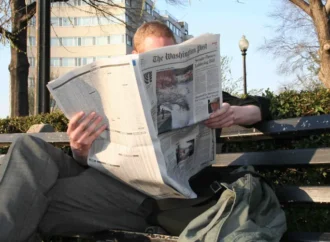One of the most popular New Year’s resolutions—alongside “Lose weight” and “Improve relationships”—is “Read more.” Most people feel a moral burden to get through as many books as possible in a year. It’s drilled into us from a very early age that reading is associated with success in life, and successful people reinforce this idea by bragging about how many books they read. It doesn’t matter what you read, just read! Read to prevent societal collapse! Read for the sake of Western civilization!
I’m not here to denigrate reading. Of course not. I wouldn’t be writing these words if I didn’t want people to read them. I happen to think that writing is the most brilliant invention in the history of the world, with books being a close second.
I do, however, want to absolve people of any guilt they feel about not reading enough. Setting yourself the goal of reading, say, a dozen books over a 12-month period is setting yourself up for failure unless you are already in the habit of reading. It would be far more effective, and easier on your conscience, to work on building your reading habits.
No one has beaten this drum more consistently over the last 20 years than Professor Alan Jacobs. He has written at least three books about reading (as well as two books about reading specific books). One of the many lessons I’ve learned from Jacobs is the value of “reading at whim.” Follow your tastes, he says. If you enjoy mystery novels, read a mystery novel. If you like pop-psychology and cultural trends, read a book by Malcolm Gladwell.
Not all books are created equal, of course. Some books are more worth your time than others. But you may have to work up to those books slowly. Start with a book that intrigues you, whether it be “Percy Jackson” or “The Anxious Generation.” Then, Jacobs advises, move upstream. What inspired Rick Riordan to write his mythological fantasy novels? What books did he draw from? Whose ideas is Jonathan Haidt building on in his analysis of social media?
Reading upstream can help you access unfamiliar, even difficult books because you are already thinking about their subject matter. “The Anxious Generation” may spark curiosity about the role of technology in our lives or about the relationship of parents and children in the modern world. Lots of good books have been written on both topics, books that aren’t at the top of last year’s bestseller list. Build a habit and slowly work your way towards them.
The key word is slowly. Don’t rush straight to the Classics section and grab the fattest volume. Take your time. Build your muscles. If a book is very good, it doesn’t take a lot of reading to fill you up. A single page of Augustine’s “City of God” can keep your mind busy for six months. Those who blitz through stacks of books usually don’t have time to stop and think about what they’re reading. It’s the difference between taking a walk along a country lane versus zooming down the highway. Travel is faster on the highway, but it’s much easier to see the countryside from the lane.
The writer James Clear has popularized the term “choice architecture,” referring to the way your surroundings can influence your habits. If you always keep a package of Oreos on your desk, for example, it’s very likely that you’ll eat a lot of Oreos. Building better eating habits may be as simple as taking the cookies off your desk.
Can you use choice architecture to change your reading habits? Yes, but let’s be realistic about it. If you leave Plato’s “Republic” on your nightstand, there it will stay while you watch TV or scroll on your phone. Put Plato back on the shelf and replace him with Bill Watterson. I’m serious. “Calvin and Hobbes” will keep you entertained while the act of sitting silently and turning pages becomes comforting and familiar. Slow gains with minimum effort.
The best way to build a reading habit—or any habit—is to start early. If your parents read to you, if you had a bookshelf in your bedroom, if you spent a lot of time at the local library, the chances are high that today, as an adult, you regularly have a book in your hands. Not everyone had those things as a child, of course. But even if you didn’t, you can give them to the next generation. Read to your kids. Buy them books. Take them to the library. Books will be part of their choice architecture long before they are aware of it.
Books like “The Read-Aloud Family” by Sarah Mackenzie and “The Read-Aloud Handbook” by Jim Trelease are full of recommendations for family books. Pick something that interests you. That will make it easier to pick up the book in the evening after a long day.
I used to keep track of the books I read by logging them on Goodreads. After several years, I realized I was forcing myself to finish books I disliked just so I could add them to my growing “Read” list. A half-finished book was worth nothing to me. That’s when I decided to stop keeping track of what I had read and start logging what I was currently reading.
Now I keep a record of what I read, watch, and listen to on a daily basis. I don’t set any goals. I don’t keep track of “streaks” or pressure myself to finish every book I start. I just read when I have time and make a note of what I read. It’s taken reading out of the realm of success and failure and returned it to its rightful place in the world of habits, where the only objective is to grow slowly in a worthwhile endeavor.
This article was made possible by The Fred & Rheta Skelton Center for Cultural Renewal.
Image credit: Unsplash
2 comments















2 Comments
Jake Powell
October 28, 2025, 3:14 amI would say most of my reading list comes from upstream. So many books reference other great books. I get a lot of recommendations from podcasts as well. I’m getting to the point where I realize I just don’t have enough life left to read everything I want.
REPLYJonathanTier
October 29, 2025, 2:34 amgreat
REPLY